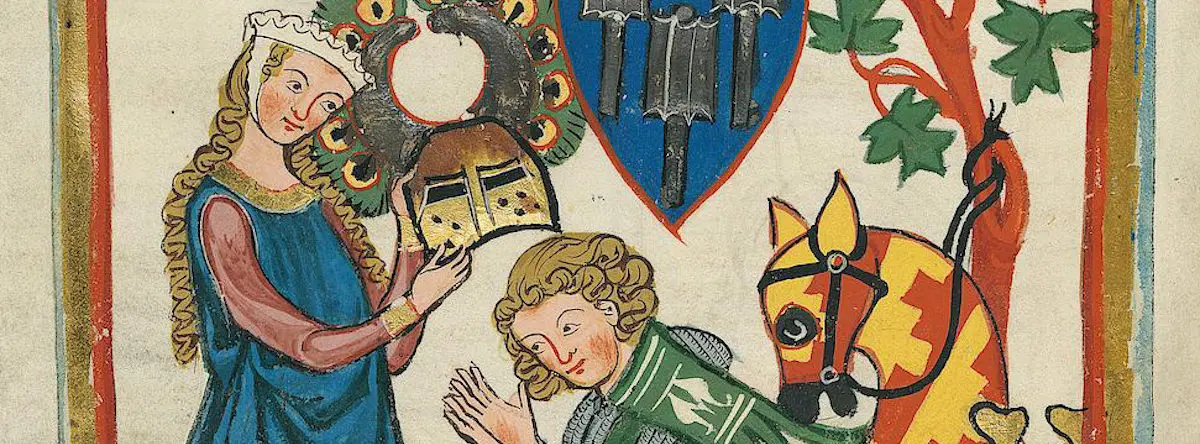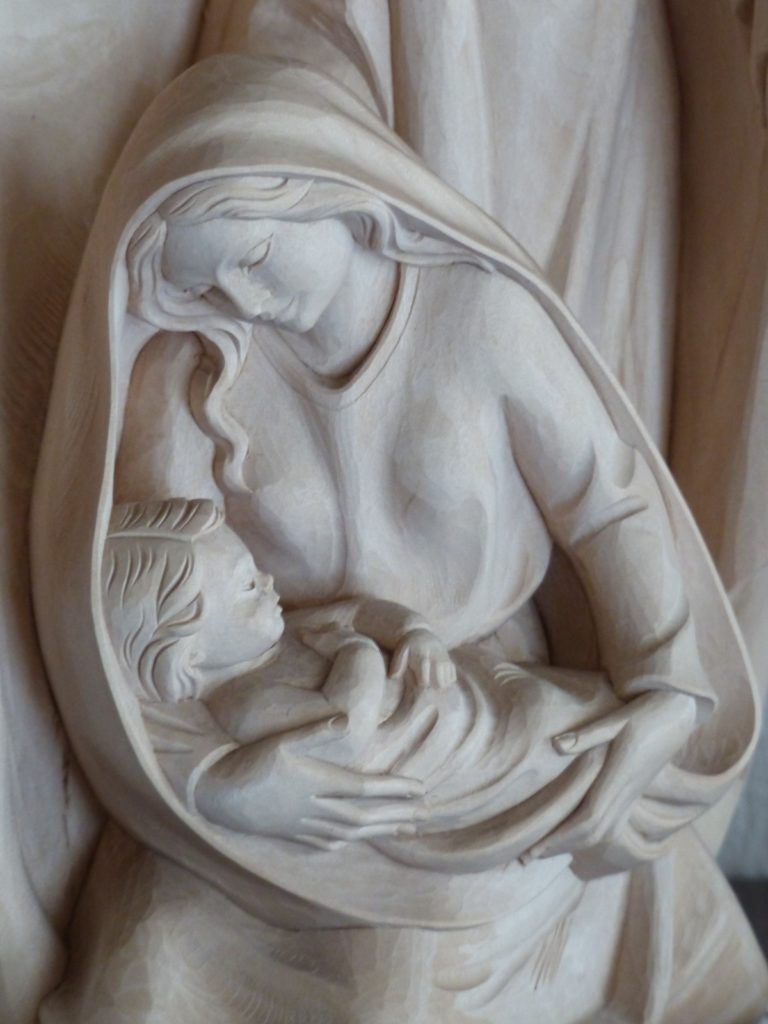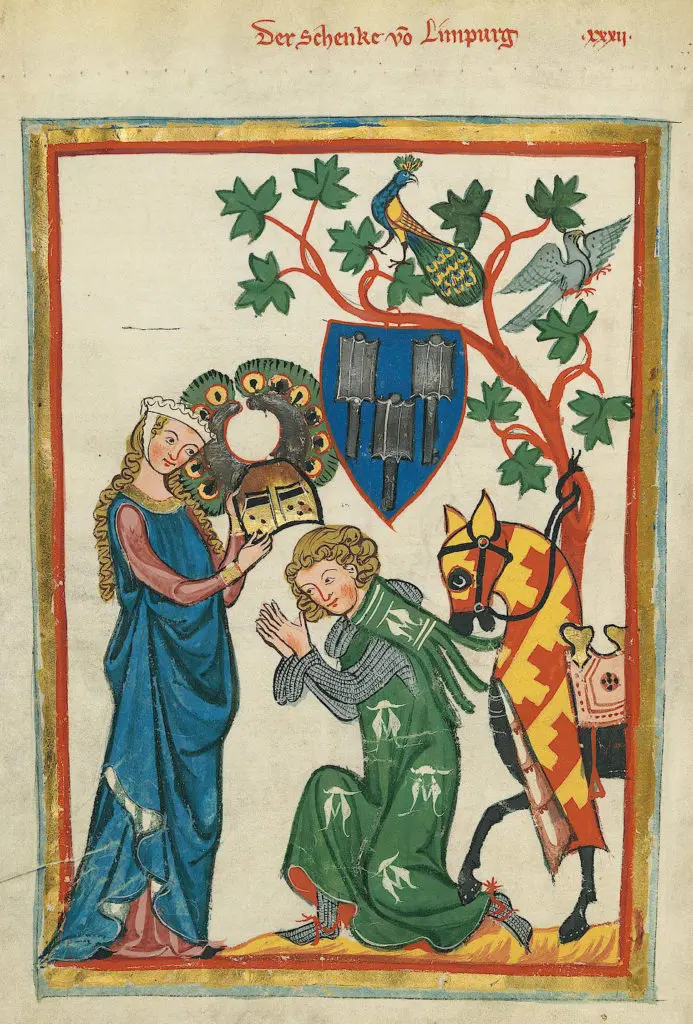Has Feminism Unseated Chivalry?

“When a man loves a woman, he has to become worthy of her. The higher her virtue, the more noble her character, the more devoted she is to truth, justice, goodness, the more a man has to aspire to be worthy of her. The history of civilization could actually be written in terms of the level of its women.”
Chivalry. Feminism. With the myriad of emotion these words evoke, you’d think that they were 4-letter words! But do we really understand what they mean? And, in today’s world, can a relationship have both?
Chivalry and Feminism
According to Merriam-Webster, chivalry is “the system, spirit, or customs of medieval knighthood,” a “gallant or distinguished” gentleman, and “the qualities of the ideal knight.” Because knighthood thus defined is a thing of the past, we will refer to the “gallant and distinguished” gentleman definition here—a man who puts the needs of a woman first, who speaks kindly and respectfully, who does little things like holds doors and carries groceries, and who cares for and protects women. (However, one should know that chivalry also covers one’s duty to God and country and encompasses the virtues – think of the Knights Templar, for instance, or knights who show both courage but mercy and defend the poor and the weak. St. Francis was himself once a knight who put aside the weapons of man for the armor of God.)
Feminism is a belief in the economic, cultural, and political equality of women. With roots as far back as the 1600s in France, it began to take hold in America after an 1848 meeting in Seneca Falls, New York, where a group of about 300 people showed up to advocate for the rights of women and create a written declaration of the rights they felt women should have. Here, feminists such as Elizabeth Cady Stanton and Lucretia Mott, among others, not only fought for women’s rights, but for the rights of African Americans as well. According to History.com:
“The declaration began with 19 ‘abuses and usurpations’ that were destined to destroy a woman’s ‘confidence in her own powers, to lessen her self-respect, and to make her willing to lead a dependent and abject life.’ Moreover, women were required to be obedient to their husbands and prevented from owning property, including the wages they earned (which technically belonged to their husbands).”
Some men also signed the declaration in support, including Frederick Douglass.
Success came slowly. During WWI, women took on increasing roles in the workplace and proved they deserved the rights they had demanded for years. This culminated with the 19th Amendment and the right for women to vote in 1920.
A “second wave” of feminism came after WWII when women took more of a lead in the workforce. At this time, the Civil Rights movement was in full swing, and people were beginning to chip away at the deep-seated prejudices that once held the country hostage.
But then the pendulum of change swung a bit too far.
All Feminism is Not Equal
The 1950s, 1960s, and the 1970s were turbulent years. The birth control pill became legal and readily available. The same was true for abortion. Tensions were high because people were losing their brothers, sons, husbands, and friends in Vietnam. Freedom—of all sorts—was the hip mantra.
Women like Margaret Sanger and Gloria Steinem looked around and saw the perfect opportunity to push their agendas. (Sanger’s mother was Catholic, her father an atheist. Steinem had an abortion at age 22 before Roe vs. Wade.) Feminism now started to take on aspects that were anti-pregnancy, pro-contraceptive and at times pro-abortion. This was a far cry from initial fights for equal respect, value and independence. Women began to think that freedom from the “shackles” of men, from unemployment or underemployment, and from restrictive upbringings meant that they could do whatever they wanted whenever they wanted. And they were determined to have fun doing it. They were going to be free to use their bodies in any way they chose. Thus birth control was adopted as a “free pass” to unfettered sexuality.
But, as we know, freedom often comes at a high price. Not only did STDs become rampant, but when the birth control failed, abortion became a viable option. Yet the new wave of feminism, which simply cried, “It’s my body, my choice,” caused many women to began distancing themselves from this type of feminism. Phyllis Schafley became a leader and spokesman who not only recognized but brilliantly fought the anti-family philosophy it was. This would take the form of leading a campaign that would uphold the dignity of women and assisted in killing attempts to pass the ERA, the Equal Rights Amendment. She foresaw that it would promote abortion and erode the family.
Fast forward to today where, in the US alone, we see 3,000 abortions per day. The legacy of Margaret Sanger—Planned Parenthood—thrives on this “right” to abortion. And we nearly had a first woman president who says she fights for women, but who advocates slaughtering them in the womb. For this, she has been honored by Planned Parenthood. Twice. In 2009, Hillary Clinton was given the highest honor possible by Planned Parenthood—the Margaret Sanger Award. This award “is presented annually to recognize leadership, excellence, and outstanding contributions to the reproductive health and rights movement.” Then in 2016, at the 100-year anniversary gala of Planned Parenthood, the organization honored Clinton “with the Champion of the Century Award for her 40 years of service to women and girls in this country.”
Service to women? How is preying on women in desperate situations something we as women should honor? Yet anyone who attempts to block access to abortion is vilified by Clinton. According to CNN, “Hillary Clinton . . . called the recently signed abortion law in Alabama, and other pieces of legislation that restrict access to the procedure, an example of ‘appalling attacks on women’s lives and fundamental freedoms.’”
Appalling attacks on women’s lives? What about on the babies’ lives?
Godly Femininity

Yet, many people today want us to believe that men and women are the same and should be treated as such. Today’s world is confusing for young men and women. Men often say they have difficulty navigating the world of dating and aren’t sure how to treat women. Well, there’s one thing a woman can do that a man cannot. Woman has been gifted with the ability to carry and give birth to a child—and this is the greatest blessing bestowed upon her. Sadly, it is a blessing often thwarted and looked upon with disdain rather than embraced.
In Mulieris Dignitatem (On the Dignity and Vocation of Women), St. John Paul II wrote that women have a special role in being entrusted with bearing life:
The moral force of women, which draws strength from this awareness and this entrusting, expresses itself in a great number of figures of the Old Testament, of the time of Christ, and of later ages right up to our own day.
A woman is strong because of her awareness of this entrusting, strong because of the fact that God “entrusts the human being to her,” always and in every way, even in the situations of social discrimination in which she may find herself. This awareness and this fundamental vocation speak to women of the dignity which they receive from God himself, and this makes them “strong” and strengthens their vocation.
Thus the “perfect woman” (cf. Prov 31:10) becomes an irreplaceable support and source of spiritual strength for other people, who perceive the great energies of her spirit. These “perfect women” are owed much by their families, and sometimes by whole nations.
Jenny Uebbing, a writer for Catholic News Agency, articulated the Catholic Church’s vision beautifully when she wrote:
“When I speak of Catholic feminism, what I mean is a total embrace of what it means to be a woman: self-giving, creative, strong, and capable of profound sacrifice and leadership. I think that the modern feminism has become too conflated with Planned Parenthood’s agenda of sexual free-for-all and an angry, even violent rejection of motherhood and fertility. Feminism that calls a woman to reject and mutilate her body is only suppression and degradation by another name.”
Women in our culture are angry—and rightfully so. Our bodies have become a different kind of currency, greasing the wheels in an economy that runs on sex and outrage. We are told that we are strong, capable, and equal in every way to men, and then simultaneously degraded in every way, our parts dissected to sell products and our hearts numbed with the lie that “what you do with your body has no consequences, no deeper meaning, and you have no business believing otherwise. (Source: Endow)

“The most Marian of saints, Joseph is the one through whom a man may come close to the Virgin, learn from her, centering himself on Jesus like her. Yet he is not passive in this relationship. Joseph is dedicated utterly to the protection of the Woman and the Child, in a chaste love that is prepared to defend the honour of his Lady to the bloody end of martyrdom.” ~ Stratford Caldecott
As we have seen, there are consequences—very serious ones. When sex becomes just a fun pastime activity, women are abused as playthings. Pope Paul VI accurately predicted this when he wrote Humanae Vitae.
So What Now?
Times have changed, and thankfully women—at least in the United States—are now on equal legal ground with men. This is only right and fair. Though disparities and prejudices sometimes exist in the business world and in the minds of some people, we must continue to push forward, making the world a better place for both sexes. But that does not mean unrestrained freedom with our bodies as Sanger or Steinem advocated. Our bodies are temples of the soul. Made in the image and likeness of God, we must strive to honor both.
Furthermore, we must instill in our children this value of themselves. They should grow up in a society where the man is free—yes, free—to show chivalrous regard for the dignity of woman. And likewise, the woman should be gracious when she is shown respect, and not dispense with the glory of her femininity on anything-goes sex and abortion. When in doubt, look to the example of the Holy Family. St. Joseph honored Mary in every way. This is no way detracted from her perfection nor love and honor of him. And both adored Christ, their Son yet God Incarnate.
The chivalry we read about in history books might be dead, but I prefer to think it has just taken a new form.


